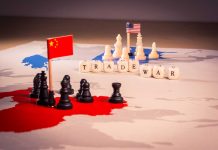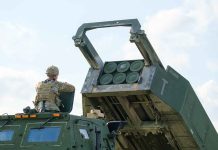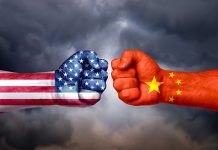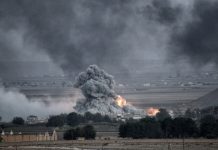
Ukraine’s Peace Talks Strategy: Steering Clear of the Dragon
Well, folks, it looks like Ukraine’s President Volodymyr Zelenskyy is playing a game of diplomatic chess, and he’s not about to let China make the next move. In a world where geopolitics can be as messy as a three-year-old’s finger painting, Zelenskyy is trying to keep his canvas clean. But why should you, our patriotic conservative readers, care about Ukraine’s choice of mediators? Because this isn’t just about Ukraine – it’s about the global balance of power, and how America’s interests play out on the world stage. So, let’s dive into this Eastern European soap opera and see what’s really at stake.
Zelenskyy’s Diplomatic Dance
Ukrainian President Volodymyr Zelenskyy has made it clear that he doesn’t want China to play mediator in the ongoing conflict with Russia. Instead, he’s hoping that China will use its influence to pressure Moscow into ending the war.
“If China wants to, it can force Russia to stop this war. I do not want (China) to act as a mediator. I would like it to put pressure on Russia to put an end to this war” – Volodymyr Zelenskyy
This stance reflects Ukraine’s complex diplomatic strategy, balancing between seeking international support and maintaining control over its own fate. Zelenskyy’s approach demonstrates a keen understanding of global power dynamics, recognizing China’s potential influence while also preserving Ukraine’s agency in any future peace talks.
The Stakes and Conditions
Ukraine is open to talks with Russia, but not without conditions. Zelenskyy aims to restore Ukraine’s territorial integrity, a challenging goal considering Russian forces currently occupy nearly 20% of Ukrainian territory.
“All our conditions will be in place. That does not mean that at that precise moment, we will recover our 1991 borders.” – Volodymyr Zelenskyy
The Ukrainian president’s stance is clear: while he’s willing to negotiate, he won’t compromise on Ukraine’s sovereignty. This position puts him at odds with Putin, who has expressed willingness to negotiate only if Ukraine concedes the annexed regions – a proposal Zelenskyy firmly rejects.
Challenges and Criticisms
Zelenskyy faces numerous challenges, both on the battlefield and in the diplomatic arena. He acknowledges Russian advances due to delays in equipping Ukrainian brigades and has been critical of allies for restricting weapon use and delaying arms deliveries.
These frustrations highlight the complex web of international relations and military logistics that Ukraine must navigate. As the conflict drags on, Zelenskyy’s ability to maintain international support while pursuing Ukraine’s interests will be crucial.
Looking Ahead: Uncertainty and Hope
As Ukraine continues its fight, uncertainty looms over future U.S. support, particularly with the upcoming presidential race. Zelenskyy recognizes the potential impact of U.S. elections on Ukraine’s situation and emphasizes the need for dialogue with various political teams.
Despite the challenges, Zelenskiy remains committed to finding a diplomatic solution that includes Russia’s participation in future peace summits. This approach demonstrates a pragmatic understanding that lasting peace will require engagement with all parties involved, even as Ukraine steadfastly defends its territorial integrity and sovereignty.






















